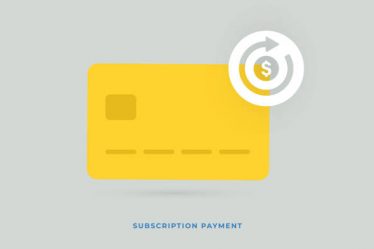
There are a few things you can do to improve your credit score. To improve credit scores, paying all bills on time is important. This will help you improve your credit score in a short time.
Are there things you can do immediately? What can you do to increase your credit score quicker? Here are some ideas.
Pay down revolving accounts.
Your credit utilization rate largely determines your score. This category applies to credit card accounts. Revolving credit is an important factor in determining credit scores. If you aren’t careful, it can cause great damage.
The amount of credit you use from your credit card accounts is called utilization. Your utilization rate is 30% if your credit limit is $10,000 and your balance is $3,000
To have the lowest impact on credit scores, keep it below 30%. A lower credit score is better. To avoid paying finance fees, paying off your credit cards in full each month is a good idea. This is called a “transactor” in the industry. Revolvers are people who have balances month-to-month. They incur finance fees, which is where credit card companies make money. Your score will improve if there is activity on your accounts. However, that does not mean you should incur finance charges. Use your cards and keep your utilization rate low.
To boost your score quickly, you should increase your utilization rate. This is a significant step after months of establishing solid payment records (payment history accounts for about 35% of your score).
We want you to know that you should not close a credit card account even if it is paid off completely. Your utilization ratio will improve if more accounts are open with unused balances. The utilization rate is calculated by taking your credit limit and balance for every card you own and for all cards together.
Your credit score may be affected if you close an account opened years ago. 15% of your score is your credit history. Your “credit mix” is another 10% of your credit score, so keep your accounts open and contribute to a healthy credit mix.
You can also increase your credit limit. This is not a good idea. If your current accounts have higher credit limits than you can get, your balance will increase, and your utilization rate will immediately improve.
Correct credit reporting errors
Surveys found that one in four credit reports contains errors that could affect creditworthiness. It is common for outdated information or mistakes on credit reports. This could cause a decline in your credit score.
It’s not as difficult as you might think to correct credit reports. You can get a free copy of your 3 credit reports from www.annualcreditreport.com. You can request to have any information that you don’t believe is correct, unfamiliar, or out-of-date in writing.
The Consumer Guide to Good Credit is free and contains all the information you need and sample letters. It would help if you did not use any form of letters from us or other sources. Instead, write your letter asking for your credit report to be corrected. Your request may be ignored if the credit bureau receives a clear-form letter.
This is a new feature. Credit bureaus have 30 days to investigate any dispute that you raise. If they cannot confirm the information, they will remove it. The credit bureaus cannot keep up with the demand due to the time limit and many submitted disputes. They scan the letters to determine if they are form letters. If they are, they can ignore them as “frivolous” to move on to the next case. Let’s say that you shouldn’t send a “fill-in-the-blanks” form letter. Instead, create your own.
It is possible to be tempted by a third-party “credit recovery” company to handle this task for you. This option should be avoided. Credit repair is dangerous, and many scammers are in the industry. Consumers are warned by the Federal Trade Commission (FTC) about credit-repair scams. We recommend that consumers are educated about credit repair, possibly with the assistance of a respected nonprofit organization. With little education and guidance, correcting your credit is not difficult.
Remove any delinquent items.
Clear any delinquencies in your credit history. If they continue, they will have an ongoing negative impact on your score. Your payment history is the number one factor that determines your score. It accounts for approximately 35%. This is the most important section of your score.
While we are discussing paying off balances and rectifying inaccuracies while correcting them, the first balances you need to pay are past due amounts and delinquent payments. You’ll notice a rise in your score once everything is current. Then you can look at other possibilities to increase your utilization ratio.
You should satisfy any delinquent items in the statute of limitations.
Any unsecured debt that has passed the statute of limitations should not be accepted. Refer to the Consumer Guide to Good Credit and ” What Can You Dispute on My Credit Report” to learn more about what the FTC calls Zombie Debt. The FTC states that “Don’t reset the debt clock accidentally.” You can sue a debt collector for the entire amount plus any interest and fees if you promise or make a payment on a time-barred debt.

